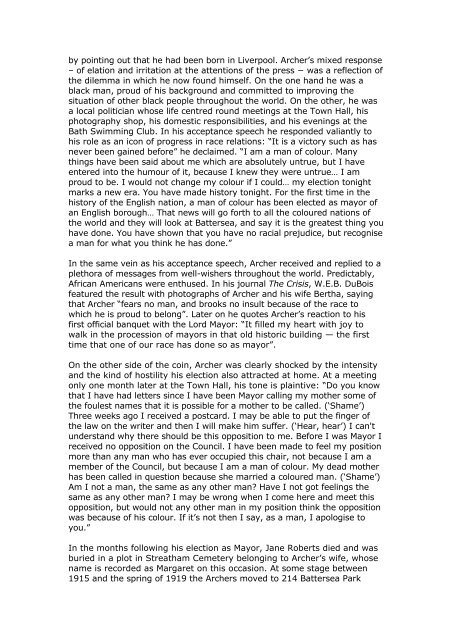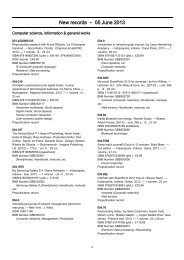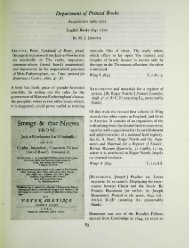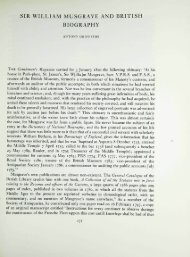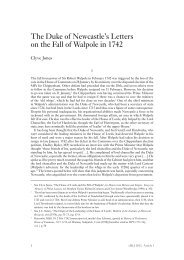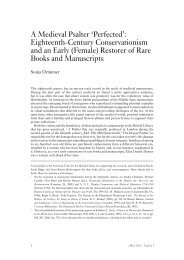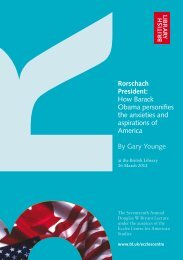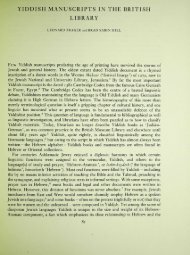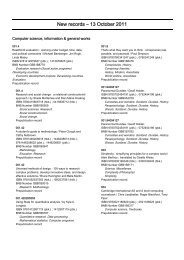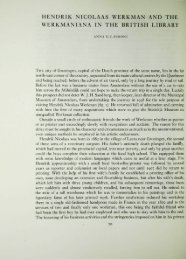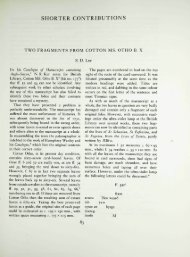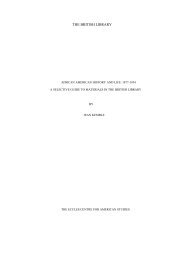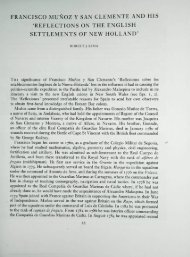John Archer (1863 –1932) - British Library
John Archer (1863 –1932) - British Library
John Archer (1863 –1932) - British Library
You also want an ePaper? Increase the reach of your titles
YUMPU automatically turns print PDFs into web optimized ePapers that Google loves.
y pointing out that he had been born in Liverpool. <strong>Archer</strong>’s mixed response<br />
– of elation and irritation at the attentions of the press − was a reflection of<br />
the dilemma in which he now found himself. On the one hand he was a<br />
black man, proud of his background and committed to improving the<br />
situation of other black people throughout the world. On the other, he was<br />
a local politician whose life centred round meetings at the Town Hall, his<br />
photography shop, his domestic responsibilities, and his evenings at the<br />
Bath Swimming Club. In his acceptance speech he responded valiantly to<br />
his role as an icon of progress in race relations: “It is a victory such as has<br />
never been gained before” he declaimed. “I am a man of colour. Many<br />
things have been said about me which are absolutely untrue, but I have<br />
entered into the humour of it, because I knew they were untrue… I am<br />
proud to be. I would not change my colour if I could… my election tonight<br />
marks a new era. You have made history tonight. For the first time in the<br />
history of the English nation, a man of colour has been elected as mayor of<br />
an English borough… That news will go forth to all the coloured nations of<br />
the world and they will look at Battersea, and say it is the greatest thing you<br />
have done. You have shown that you have no racial prejudice, but recognise<br />
a man for what you think he has done.”<br />
In the same vein as his acceptance speech, <strong>Archer</strong> received and replied to a<br />
plethora of messages from well-wishers throughout the world. Predictably,<br />
African Americans were enthused. In his journal The Crisis, W.E.B. DuBois<br />
featured the result with photographs of <strong>Archer</strong> and his wife Bertha, saying<br />
that <strong>Archer</strong> “fears no man, and brooks no insult because of the race to<br />
which he is proud to belong”. Later on he quotes <strong>Archer</strong>’s reaction to his<br />
first official banquet with the Lord Mayor: “It filled my heart with joy to<br />
walk in the procession of mayors in that old historic building — the first<br />
time that one of our race has done so as mayor”.<br />
On the other side of the coin, <strong>Archer</strong> was clearly shocked by the intensity<br />
and the kind of hostility his election also attracted at home. At a meeting<br />
only one month later at the Town Hall, his tone is plaintive: “Do you know<br />
that I have had letters since I have been Mayor calling my mother some of<br />
the foulest names that it is possible for a mother to be called. (‘Shame’)<br />
Three weeks ago I received a postcard. I may be able to put the finger of<br />
the law on the writer and then I will make him suffer. (‘Hear, hear’) I can't<br />
understand why there should be this opposition to me. Before I was Mayor I<br />
received no opposition on the Council. I have been made to feel my position<br />
more than any man who has ever occupied this chair, not because I am a<br />
member of the Council, but because I am a man of colour. My dead mother<br />
has been called in question because she married a coloured man. (‘Shame’)<br />
Am I not a man, the same as any other man? Have I not got feelings the<br />
same as any other man? I may be wrong when I come here and meet this<br />
opposition, but would not any other man in my position think the opposition<br />
was because of his colour. If it’s not then I say, as a man, I apologise to<br />
you.”<br />
In the months following his election as Mayor, Jane Roberts died and was<br />
buried in a plot in Streatham Cemetery belonging to <strong>Archer</strong>’s wife, whose<br />
name is recorded as Margaret on this occasion. At some stage between<br />
1915 and the spring of 1919 the <strong>Archer</strong>s moved to 214 Battersea Park


